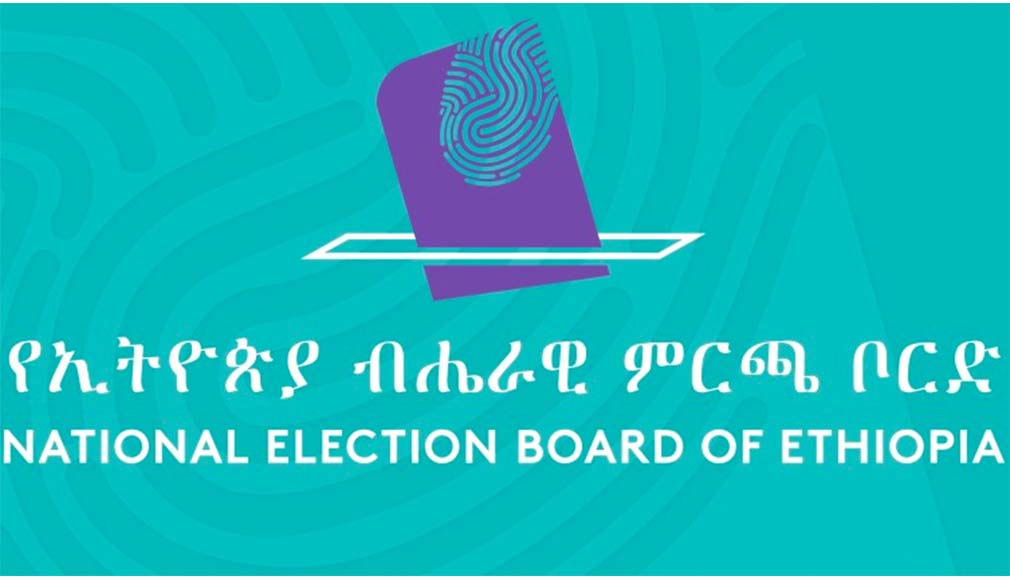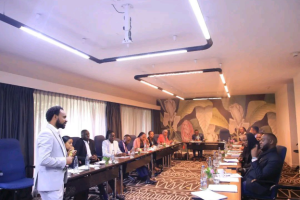
BY FITSUM GETACHEW
There is a lot of talk about elections these days. Many people would like to believe that an election would settle all the problems of a country. In any democracy, if it is genuine, elections do decide what sort of government the people would like to have. Election is the only real occasion in which people make their voices count or heard by choosing their new leaders. If they are satisfied with the incumbent they will re-confirm them in office. But if they are not satisfied, they seize the opportunity to choose new leaders. This is the normal practice in a genuine democracy.
But elections have lots of conditions under which they are held. If the circumstances under which elections are carried out are not fair or equitable to all candidate parties or political personalities we might as well consider this process flawed and it would not be of any help to earn legitimacy.
In genuine democracies, there are several mechanisms that have been put in place to make sure that elections are carried out in transparent and fair circumstances where every candidate can have a fair shot in the process. Here the preconditions for a credible election landscape are well prepared in order to guarantee that things are carried out equitably. If the system is flawed and if the process is flawed, the results will hardly be accepted to the constituencies and the exercise of democracy becomes futile, a waste of resources and time as we have experienced several times in the past.
In many so called emerging democracies, the main and most contentious issue is the issue of the playing field in order for each candidate party or personality to have a fair chance of taking part in the contention. This process is key because it can decide to a large extent the outcome. The acceptance of the result can be disputed if there are unfair practices, not only real but even those perceived, in the pre-election period. But even after these conditions are fulfilled, there is also the crucial issue of the counting of the votes and the tabulation.
We have seen in the past in many countries where political parties who find themselves at the losing end argue that the post election process was not fair. Allegations of irregularities have been often presented as excuses of setbacks and unfortunately at times these have been presented to mobilize opposition to the results which in turn often leads to emotions rising high, feelings of exclusion eventually resulting in conflicts.
Elections in democracies are a peaceful and regular exercise. They continue periodically and this is by itself a guarantee that next time things could change. They are the occasion during which political parties have the best chance to present their political programs and vie for votes. The strength of each party is seen by the programs, the reliability of the policies and by the manner in which they are ready to deal with the main challenges of the society in which they live.
It is undeniable that our political system has several weaknesses and it would be naïve to compare it with the more advanced and settled democracies. To start with we have weaknesses in the way our political parties have been founded or what they aspire to do. Basically, this is seen widespread in many African countries. We tend to give priority to origin or creed instead of ideology or policies. A political party that is founded to represent a certain ethnic group has definition limited itself to the members of that group. This is unfortunately a narrow way of understanding politics and maybe too rudimentary by current political standards. Experts say politics should not be about origin but about policies and ideas that respond to the needs and aspirations of the people in question.
What does a political leader who is not well educated or well prepared and experienced to address the problems the society faces serve only because he or she happens to hail from the same ethnic group or the same language group of the people? What people need is someone, some party which has a valid and credible political program that is capable of addressing the problems at hand. For such political parties belonging to a certain group becomes not only a precondition but also adequate to earn a seat in parliament.
A choice without qualification is tantamount to surrendering one’s rights. Political systems in the developed democracies do not heed origin as a prerequisite to be chosen as a representative but the validity of the political programs and the human and professional qualities of the subject in action. These origin base parties are often heard stating that they stand up for the ‘liberation’ of this people or that people from the ‘subjugation of this people or that one! Unfortunately, this a narrative that has been exploited to access to some sort of influence or power position discrediting others who happen to hail from other groups. This is just outdated and it would be high time that people or parties talk about acceptable, positive programs that are realizable in the context of all political parties that give priority to national programs, not divisive and narrow minded nationalistic pronouncements.
The real issue is for how long will African political parties continue to talk about their origin only and not about valid, modern and acceptable political thoughts? This is a sign of maturity particularly on the part of the population. Political parties should stop referring to being for this or that ethnic group instead of devising reasonable political arguments, programs that need to be implemented to extract these populations from stark poverty. There are no ways that because of origin or because a party is hailing from a certain origin, it is entitled to govern or can resolve problems of society.
Currently in Ethiopia, there seems to reign two lines of thoughts on the formation of parties. Some have been directly inherited from a certain ideology or line of thought who would like to believe that the country is divided among many nations and nationalities who need to be ‘liberated’ from age old tyranny and oppression. And the only system is to found a party with the name of that nationality. This has been the fashion of the days and we have had as many political parties as there are ethnic groups or languages! This is clearly absurd today because it would be impossible to figure out a united country if we insist on talking about fractions and divisions.
The up-to-date way of thinking is one based on political ideas or ideologies or policies and programs rather than identity or origin, language or creed. Parties are now required to present acceptable, logical and reasonable programs or policies to the public not only seeking support only on the basis of hailing from a certain ethnic or language group. Experience has shown us that belonging to a certain language or ethnic group does not necessarily guarantee the success of solution to peoples’ problems.
The Ethiopian Herald March 16/2021




